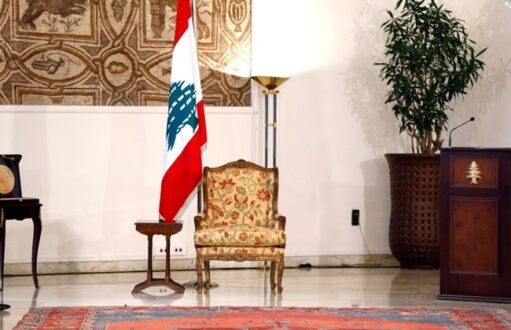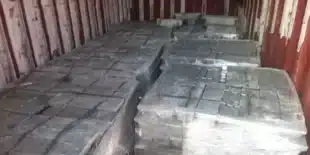Fed up with the lingering vacuum in the country’s top Christian post, Maronite Patriarch Beshara Rai is preparing to soon launch a plan aimed at ending the deadlock that has left the country without a president for nearly 10 months, sources close to the cleric said. Refusing to give details of the plan, the sources said that Rai has held intensive contacts in the past few days with foreign ambassadors in Lebanon and the U.N. in a bid to resolve the presidential crisis as soon as possible.
The sources did not rule out the possibility of Rai resuming his meetings with the country’s four top Maronite leaders – Free Patriotic Movement leader MP Michel Aoun, Lebanese Forces chief Samir Geagea, Kataeb Party leader Amine Gemayel and Marada Movement head MP Sleiman Frangieh – in Bkirki to discuss ways to break the presidential deadlock.
Rai’s talks with the four leaders in the past failed to bridge the wide gap between them over the election of a successor to former President Michel Sleiman, whose six-year mandate ended on May 25. While Aoun’s bid for the presidency is supported by Hezbollah and its March 8 allies, Geagea is the March 14 coalition-backed candidate for the top post.
In addition to possible meetings with the four Maronite leaders, Rai might also consult with the country’s Muslim leaders, including Speaker Nabih Berri, Prime Minister Tammam Salam, MP Walid Jumblatt, and officials from the Future Movement and Hezbollah on the presidential crisis, the sources said.
Meanwhile, the local political scene and regional powers are waiting for the outcome of the U.S.-Iranian negotiations on Iran’s nuclear program.
If a nuclear agreement is not signed between Iran and Western powers, the strategic tug-of-war will go on in the region, from Yemen up to Lebanon, Lebanese sources said.
While Lebanon will be shielded from the security repercussions of the regional turmoil, the country will continue to be plagued by political paralysis and obstruction because none of the players are ready to give up their cards, the sources said.
They added that in tandem with the Lebanese Army’s ongoing battle against terrorism, the internal political confrontation will heat up in the next few months, with Aoun expected to be at the center of the battle over the presidential election. Elements of this battle have begun to emerge in the crisis over plans to extend the terms of military and security chiefs. Aoun strongly opposes the incumbents remaining in their positions.
According to the sources, Aoun considers an agreement between the Americans and Iranians over Tehran’s nuclear program to be in his interest, because such an accord would be seen as a victory for the “resistance axis” (Iran, Syria and Hezbollah).
All efforts to talk Aoun into abandoning his presidential bid have failed, thus leaving only the possibility of external pressure being exerted on him to persuade him to step aside, the sources said.
According to the sources, Aoun is facing three options:
First, the adoption of Aoun’s candidacy for the presidency by various political parties after the FPM’s dialogue with the Future Movement and the LF pave the way for this move. However, this possibility is very weak given the regional signals which favor a compromise president.
Second, Aoun would choose and name Lebanon’s next president in exchange for obtaining minor political gains in power.
Third, a Lebanese, Arab, regional and international consensus would be reached over a centrist presidential candidate, who would be imposed on Aoun, similar to what happened in Doha in 2008, when rival political leaders agreed unanimously to elect Michel Sleiman as a consensus president.
Following U.S. Secretary of State John Kerry’s statement on the need to negotiate with Syrian President Bashar Assad as part of a settlement of the Syrian conflict, the sources said they expect the election of a consensus president who would not be loyal to the regime in Syria, but at the same time would not be hostile to it.
Some countries have begun adapting themselves to have the same policy. Diplomatic sources said that France, for instance, plans to appoint diplomat Manuel Bon as its ambassador in Lebanon.
Bon, who maintains strong ties with lawmakers from Aoun’s parliamentary Change and Reform bloc, will probably restore channels of communication with Hezbollah, because talking to the party means entering into a dialogue with the axis it represents.
Despite its negative stance on Assad staying in power, the U.S.-Iranian negotiations and Hezbollah’s role in Lebanon, Syria and the region in general, France wants eventually to preserve its regional role if developments lead to a peace settlement in the Middle East. After all, Lebanon has long been viewed as an important part of France’s foreign policy.


